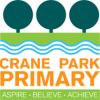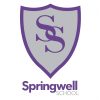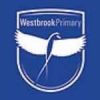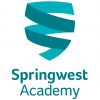Boosting A Level results
Published: Sunday, February 2nd, 2020 at 7:09 PM
Jay Lockwood of Logic Studio School talks about how we’re working with our A level teachers to boost our students’ results, and how the 4 HEP principles from ‘Develop your A level teaching’ are being embedded in his school.
Hounslow schools have a great reputation for providing our students with the tools to secure impressive grades at GCSE: 68.5% achieved a grade 4 or above in both English and Maths compared with a national figure of 64.4%. Those achieving a 5 or above in both English and Maths (48.8%) was also significantly higher than nationally (43.0%). Provisional information indicates our students’ results were well above national average in their 8 best GCSES; with the borough ranked 11th out of 150 local authorities in the country.
However, our great GCSE results don’t always mean our A level results have followed suit. There’s room for improvement - so what are we doing to make sure our young people have the best start to their adult lives by achieving the very highest A level grades they can?
Starting this academic year (2019-20), HEP is running a project for continuing professional development (CPD) for its teachers, called ‘Develop your A level teaching’. We are working with over 100 teachers in 13 HEP secondary schools. Many have sixth forms (years 12 and 13), while others are looking to add these year groups in the near future.
The teachers we’re working with cover 13 subjects, and we meet with them as a group three times a year so we can support them on working to our four HEP principles when lesson planning. They’re based on the ‘Principles of Instruction’ by Barak Rosenshine:
- Introducing new knowledge: small steps and questioning
- Application: models and scaffolds
- Reviewing material: daily, weekly and monthly
- Guided independent practice: How to set it, monitor it and check it
One of the key proponents of the project is Jay Lockwood, Principal at Logic Studio School, which caters for students in years 10 to 13. Jay has been at Logic for four years and has been a teacher within the borough since 2008, teaching history before becoming an assistant headteacher prior to his current role.
“Firstly, for this project, post-16 education should be at the forefront of our schools’ thinking, and to get our students ready for university,” says Jay. “Success will be about getting better results for the students, but it’s also to make sure they are better prepared for their next steps.”
Part of the project means working with other teachers and schools so we can share best practice and see what areas we can improve on. “Collaboration is a huge part of it,” he adds. “CPD and teacher training works best when you’re doing it alongside colleagues - and creating relationships with close colleagues will work best.”
Taking part to focus on our borough’s post-16 teaching and education does require a huge commitment on the part of the schools, as their A level teachers need to be released to attend the three training sessions we’ll run throughout the year. It can be hard to make this kind of commitment within education, but this should pay dividends for our students and teachers in the long run. Yet because HEP is running the sessions - and seen as a high-quality provider - then schools will send staff because they know it will be a high-quality event, believes Jay.
“With the training sessions, we need to ask others about how they are embedding these teachings into their schools, how they’re using mentors and teachers, and have that conversation about what we’re doing,” he adds. “We should see what impact it’s having day to day, and we should be fostering that culture.”
Logic has been working on how to implement what has been garnered from the meetings so far into its teachers’ routine. “We have a 45-minute lesson-planning session every week, following the four principles,” Jay says. “It’s a very good directive, and it gives our teachers time to use those principles.”
So what happens now? Our next session will be centred around preparation for the upcoming summer exam season, and how we can ensure students are ready. Focusing on our post-16 teaching will help our students to achieve their full potential as they look to their future careers. Collaborating with colleagues across HEP schools can only bring successes; learning as a group, challenging and enthusing one another will tease out best practice, ultimately benefitting our young people.

















































































